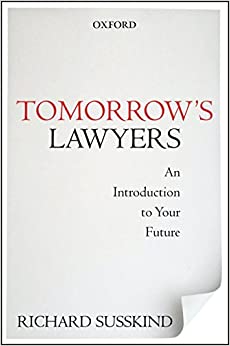DEPOSITIONS & OTHER TESTIMONY: SOME WORDS TO AVOID, SOMETIMES
In litigation, as in any other of life’s various contexts, there are terms to be avoided. I may provide some of them from time to time. Here today I want to present four of them, and I assume that you will not feel that I have under-stepped my confinements as I provide you with this information. Your not in inclined to say “No” true?
Assume. In deposition after deposition, I have heard lawyers ask witnesses this type of question:
Q. After he told you that, did you assume that his brother had killed their sister, after all?
Or this one:
Q. After she mentioned that to you, did you assume that the building had not burned down after all?
What should the answer be either of these questions? Often the answer is this:
Q. Yes.
This should never be the answer! (1) How long after was the assumption made? (2) What did the assumption have to do with what was said? (3) Was there any assumption at all?
Almost invariable, the correct answer is
A. No.
The reason is very simple. Someones having assumed that a proposition is true is never evidence that the proposition is true.
In fact, technically speaking, to assert that he did assume that the proposition built into the question was true on the basis of what was said is probably false. What the witness did was to infer that it was true. Or maybe guess.
Feel. Consider this one:
Q. How did you feel about what he said?
Often the word, “feel” in this context is trying to find out what the witness thinks, about how she might have changed her mind, were any doubts raised, or what was her guess.
This is not what the word is really about. Feelings are emotional, not cognitive. What answers might be appropriate?
A. I immediately hated his guts. That made me feel really good.
A. I fell in love with him. And I felt disgusted with myself almost immediately.
A. I realized that I detested both his wife and his mother. And so I felt like a shithead.
A. I became very anxious. I haven’t felt like that in years.
A. I felt delighted, but I didn’t know why.
A. How did you feel about you closest friend during all you youth, when she and your widowed father had sex several weeks ago in the back seat of his Caddy–the one he used, long ago, to take you to school?
The lawyer who feels good about using the word “feel” in a fact-oriented deposition is taking a huge chance. If the fact about which an inference is sought can be completely buried at trial if the witness wishes to say, “Gracious” or better “Friendly.” I didn’t realize you were asking about what I had come to believe (or come to hypothesize). I thought you were asking about how what was said affected me in my gut. I felt very strong emotions at the time because of you and the way you treated the court reporter. Aside from my overwhelming feelings at the time, what I actually thought and believed was that condescension is never a virtue, and that you should have listened to your grandmother.”
I don’t know how you are feeling about the topic here, the prose used, or the author. If it has moved you maybe you’re feeling something. I doubt you’re assuming much, however, you didn’t believe before you read the essay.
Information. The word “information” is sometimes confused with the words “true” and/or “truth.”
Consider the following questions:
Q#1. When did you first realize that the information provided you was actually false?
Q#2. When did it dawn on you that the unlikely information provided you was really true?
Often the answers are something like these:
A#1. At about 4:00, I awakened again from a fitful sleep, and I realized that the information given me–No, information I spent a lot to get–was false.
A#2. I realized it almost immediately.
The problem with these dialogues is that information by definition true. There is no such thing as false information. There are false assertions, or there are propositions that are false but which have been asserted anyway, for one reason or another. Some propositions are close to true, but they are not information because they are not actually true In addition, one does not realize that information is true. One realized that what has been said is true–in other words–that it constitutes information. The answers should go like this:
A#1′. I realized something important. It was that what has been said to me was false, and therefor not information at all.
A#2′. I realized almost immediately that I was actually receiving information.
These errors are probably less significant that the first two may be. Perhaps the same may be true for the next one. Of course, pile of related sentences need not be either true or false as an entirety. Some may be false and some may be true. This would mean that some of what has been asserted is information and some of it is not. In addition a group of false propositions asserted may be informative, even thought they are not information. Hearing the propositions or seeing them all together may lead the hearer to realize that all of them are false or that only some of them are true.
Maybe the next set is more dangerous than the last.
Double Negatives. Sometimes questions are asked in the negative.
This is especially true about leading questions frequently used in cross examination. The creation of the double negative gives the witness a good amount of room to change his mind without impeachment. Consider the following:
Q. Surely, Shirley, you don’t believe that your husband was having sex with your sister Amanda under the bed.[.][?]
A#1. No.
A#2. No.
The problem is that “No” might mean at least two contradictory things.
A#1 could easily means, “True I do not believe that they were doing that.” In contrast,
A#2 could mean, “What you have said is false. I do believe exactly that.” You are dead wrong.
The first answer pertains directly to the facts and is not actually a correct answer to the question. The second answer pertains to the question itself, and they frequently involve contradictory answers. Most people, most of the time, think that A#1 is the real answer, but as a matter of elementary semantics this idea isn’t right.
The matter is not done yet. A#1 is not so simple as one might like. The problem is that “No” could easily mean, without saying so, that “Yes they were having sex, but not under the bed. They were in the closet.” Or it could mean, “I do not believe that they were doing that. Amanda’s twin sister certainly was doing exactly that.”





Recent Comments